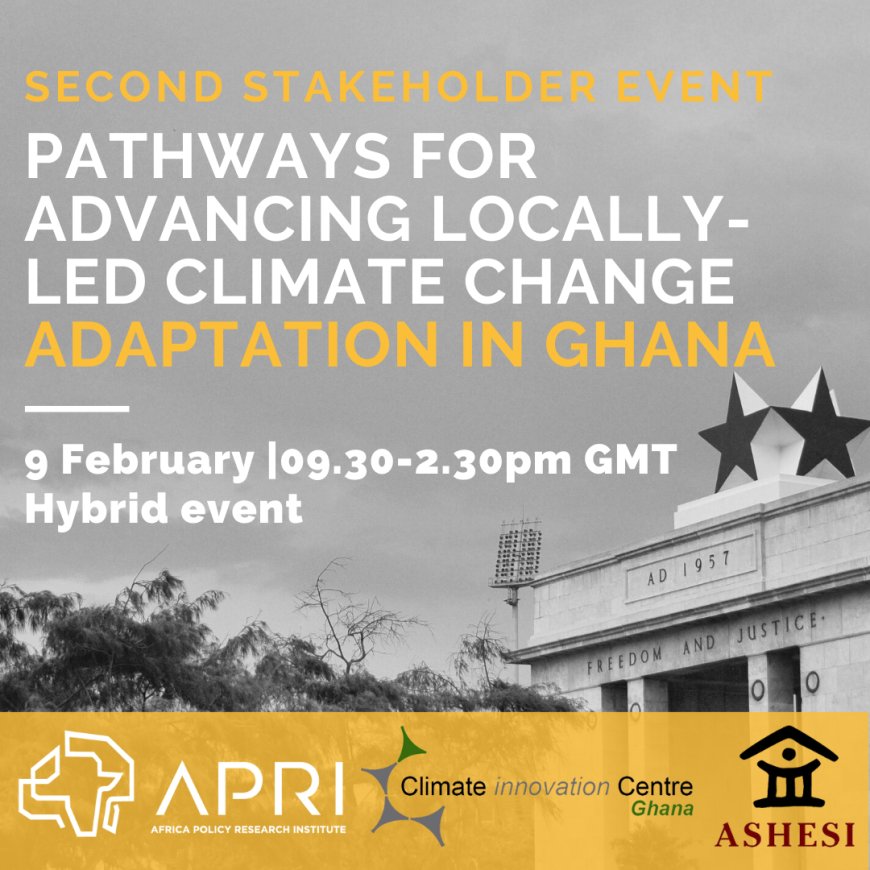Cookies on APRI Sites
We use cookies and third-party tools to improve your experience on our website. By continuing to browse the site you are agreeing to our use of cookies. Please read our privacy policy for more details.
The changing nature of Ghana’s climate and their effects on livelihoods, health, food security and economic development have been well documented. Over the years, Ghana has formulated different policies, frameworks and programmes to build communities’ resilience and capacity to adapt to the changing climate. Such strategies have included the creation of sea defence walls, US$ 200 million investment into the Greater Accra Resilient Integrated Development Project to improve flood risk and US$ 100 million programme focused on the Northern drylands to build the resilience of smallholder farmers. While finance for mitigation is important because it addresses the root cause of climate change, increased funding for adaptation is urgent to support the efforts of people and communities that are already facing severe climate impacts.
It is, however, increasingly recognised that adaptation strategies can be much more likely to be effective if developed in a manner that is cognizant of, and sensitive to, local conditions. Locally led climate adaptation initiatives are becoming important policy tools and approaches to make climate action more effective.
In October 2022, the Africa Policy Research Institute (APRI) in collaboration with the Ghana Climate Innovation Centre organised a one-day workshop that brought together various stakeholders operating in the fields of climate change adaptation space to identify pathways, strategies and shared stakeholder ambitions for deepening and advancing locally-led adaptation. Following the first workshop, this second workshop is proposed to present preliminary observations on ongoing research undertaken across different ecological zones of Ghana. The workshop will highlight how communities and different actors are mobilising to respond to the impacts of climate change and tease out some lessons for deepening locally-led adaptation. It will further reflect on gaps, challenges, opportunities and entry points for deepening locally-led adaptation in Ghana.

| Schedule | Activities | Responsibility |
|---|---|---|
| 8:30am - 9:15am | Registrations | Afua Asomani (GCIC) Richard Tetteh (APRI) |
| 9:45 | Purpose of event and Overview of Locally-led Adaptation Project | Dr. Grace Mbungu - Africa Policy Research Institute (APRI) |
| 10:00 | Presentation 1: Key Takeaways from COP 27 and Ghana’s Progress, Challenges, Gaps and Opportunities for deepening locally-led adaptation | Dr Daniel Tutu Benefor, Environmental Protection Agency/Climate Change Unit |
| 11:15 | Group Photo and Snack | All participant |
| 11.45am - 1.45pm | Presentation 2: Highlights and lessons from cases of locally-led adaptation research | Dr Albert Arhin, KNUST/APRI |
| 1.45pm - 2.20 pm | Group Activity and Presentations | Richard Tetteh |
| 2.20pm - 2.30 pm | Next steps and Wrap Up | Dramani Bukari Rukayatu Sanusi |
| 2:30 | LUNCH AND DEPARTURE | |